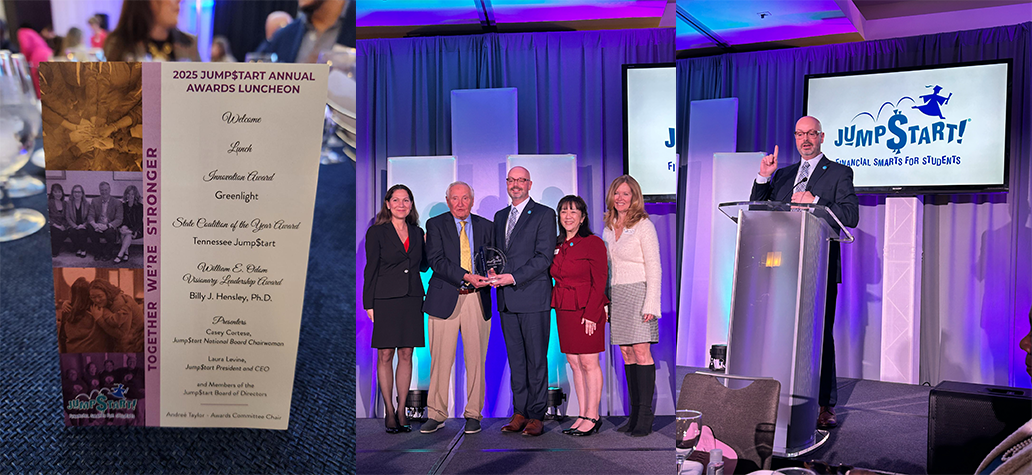Financial literacy is an important and necessary life skill. While we don’t widely see it on the classroom agenda, many are surprised to learn that it has been a formal part of the American education system for more than a century.
The inconsistency occurs as financial education ebbs and flows in popularity, generally related to the state of the economy and drivers of public policy. While research and thought leaders point to the positive impact of teaching money management concepts, the topic has had its share of detractors —which I recently wrote about for CNBC in a column titled “Let’s stop the argument that financial education doesn’t work ” — and distractors, with an emerging offender: partisan politics.
Look no further than states pursuing financial education curricula in schools. Frustratingly, even when partisan politics are not driving legislation, sloppy policymaking can cause even the most well-intentioned bills to turn controversial.
One example is North Carolina, where legislation recently passed requiring that high school students complete a financial literacy course in order to graduate — making it the 19th state with such a requirement. Initially, the mandatory personal finance class was positioned as standalone legislation.
However, with bills clogged in committee, the state Senate hastily tacked the financial literacy course onto legislation related to teacher contracts. This caused such disagreement that lawmakers who had previously sponsored the original bill voted “no,” with some legislators voicing concern that adding curricula required more vetting as well as input from teachers. Rep. Graig Meyer, a Chapel Hill, North Carolina, Democrat who strongly supports teachers, said the bill was an “inconvenient consequence out of a very well-intentioned bill.”
I have dedicated my career to closing the systemic gaps that prevent individuals from having access to quality education — the last decade of which has been focused on financial education. While mandating personal finance instruction for young adults is something I normally applaud, the case of North Carolina is troubling for the way it was conducted. Fundamentally, tacking on a classroom mandate to another bill is not good education policy.
Furthermore, a poorly built mandate can do more harm than good, and may be worse than having no mandate at all. Rather than throwing together a makeshift solution that ultimately transfers burden onto educators — who, in the case of North Carolina, were not even consulted — integrating financial education should be thoughtfully designed so we do not compound the problem of financial illiteracy instead of improving it.
As a former public school teacher and college professor, I understand the burdens placed on instruction in public education. There always has been debate over what reasonably can be achieved given the number of hours in a school day.
Financial education is important enough to merit some of that precious time ― particularly when it is designed to complement a student’s overall education with input from the real education experts: teachers.
While healthy disagreement is necessary in any democracy, politically charged disputes over the expansion and implementation of financial education makes it clear that this opposition may lead to change for the worse — and that’s a big problem.
On the federal level, however, we are witnessing a more even-keeled dialogue. In the U.S. Senate, lawmakers such as Tim Scott, R-S.C.; Jack Reed, D-R.I.; and Doug Jones, D-Ala. — co-chairs of the Financial and Economic Literacy Caucus — have come together. In Ohio, a contentious battleground state, legislators from both sides of the aisle in the House of Representatives — Joyce Beatty, D-Ohio, and Steve Stivers, R-Ohio — have publicly acknowledged the value of financial education.
Additionally, the current administration is building off past efforts of both President Barack Obama and President George W. Bush, who established bipartisan advisory councils.
In a recent report outlining the importance of financial literacy in the U.S., Treasury Secretary Steven Mnuchin said that “the administration is committed to creating the conditions for everyone to benefit from the increased economic growth our nation is experiencing, and financial literacy is a key component of this effort.” I hope this momentum will lead to finding common ground on legislation that will improve lives in a sustainable and considerate way.
Sadly, some policymakers embrace financial literacy as a way to replace financial regulation with education — putting the onus solely on the individual when, in reality, financial literacy, access to quality jobs and financial products, and regulations that protect consumers should work in concert.
Financial education is not a conservative or liberal issue. While bipartisanship in today’s political environment seems to be in short supply, financial literacy should strive to be one of the few areas of agreement within the political spectrum.
Billy J. Hensley, Ph.D., is president and CEO of the National Endowment for Financial Education (NEFE), a nonprofit foundation that champions effective financial education. NEFE is the independent, centralizing voice providing leadership, research and collaboration to advance financial well-being.


